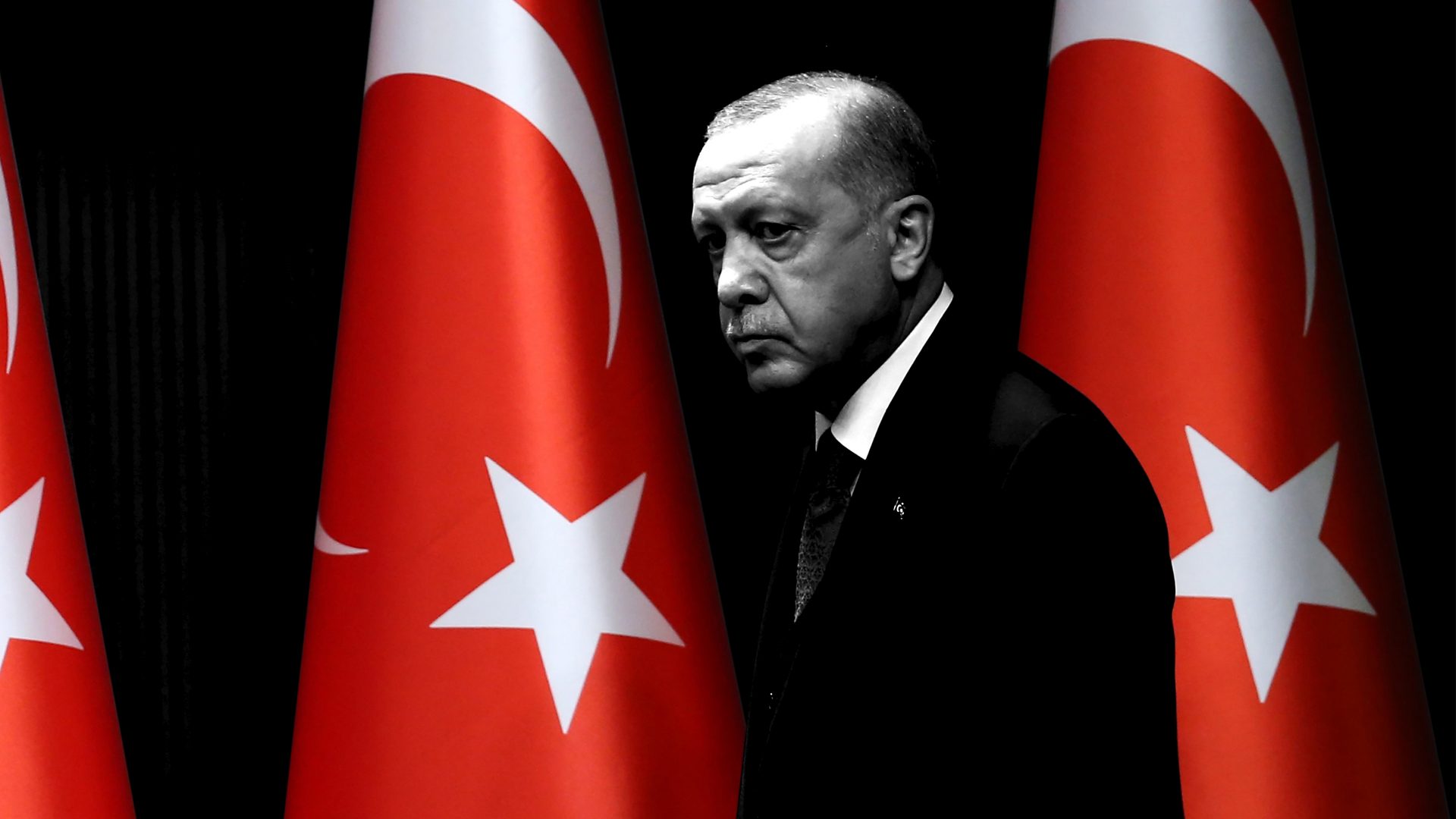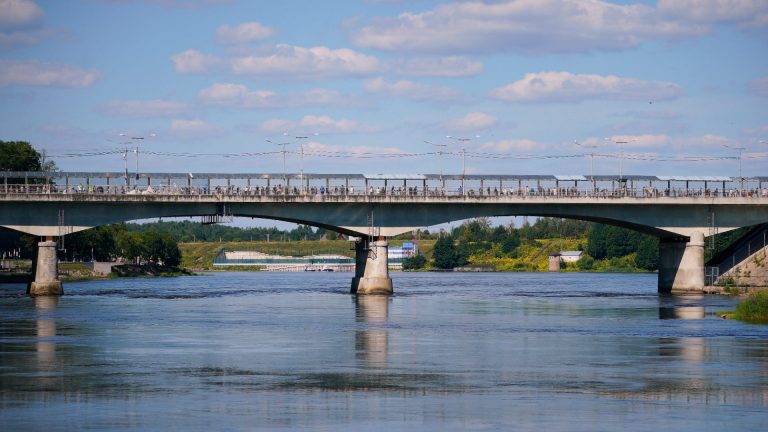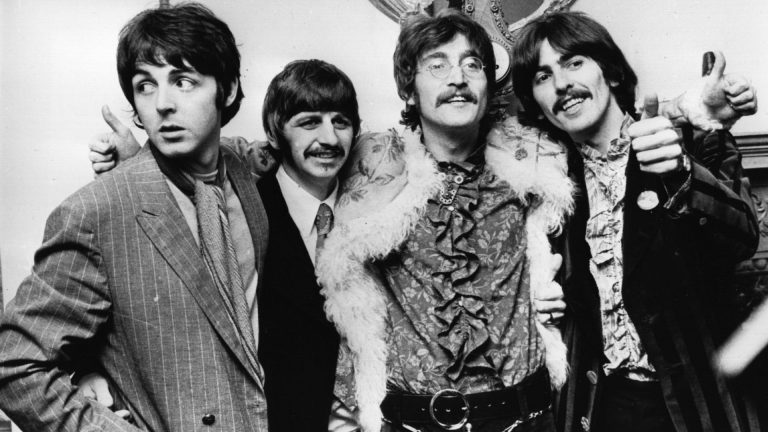As Britain turns into the embarrassing uncle of international politics and we start to wonder how many candles we should get to cope with possible power cuts this winter, I find that I’m increasingly visited by a warm glow of nostalgia.
I spent a lot of my youth in Turkey, where on many evenings we would stare into the twilight of gas lamps and candles as the power went off again, despairing about idiotic politicians and wondering whether the country would ever stop being the “Sick Man of Europe”.
In the turbulent post-Brexit era, I have felt quite at home. It turns out that when the Brexiteers voted Leave to prevent droves of Turks flooding into the country, they were actually voting for more Turkey.
It was one of the biggest of the many Brexit referendum lies – the claim that Turkey was about to join the European Union and that, unless the UK left, it would not be able to stop 70 million poor, benefit-scrounging foreigners coming to spoil these green and pleasant lands with a dose of Eastern chaos.
Can’t imagine they’d want to come now. Turks already have a leader who has a tendency to crash the markets whenever he speaks and a faith in untested, catastrophic economic “unorthodoxy”, as well as a central bank that has to spend billions of dollars trying to mop up the mess. They know all too well what it’s like to live in a country so politically divided that some family members never speak to each other, and where political differences have grown into blood feuds.
As for green and pleasant lands – just as successive Turkish governments have laid waste to theirs with uncontrolled industrialization, bad construction and dangerous mining projects, Liz Truss is promising to ruin the English countryside by rowing back on environmental protections, allowing damaging energy exploration and encouraging a swathe of ugly “free enterprise zones” to pockmark the country and undercut the regular economy.
Reports of new “liberal” planning laws that promise a free-for-all of housebuilding on previously protected land in the ethereal hope of growth completed the full house of “we are now Turkey” environmental bingo.
It is not pleasant living in a country like this. The constant chaos is draining and stressful, achieving Turkish-level unconcern for nature hugely upsetting. Working in Turkey for The Times in the early years of Recep Tayyip Erdogan’s leadership was endlessly interesting – and what made it so was what made ordinary life unpredictable and unsettling. All kinds of disaster could happen at any time and the cast of political rogue characters was enough to people a whole series of pantomimes for ever more, with chancers, gropers, lightweights, inadequate ideologies, cronies crooks and even murderers clogging up parliament.
In the early Erdogan years, his government was effectively social democratic and reformist. EU candidacy was secured, and Erdogan’s undogmatic, rational leadership (I know!) was winning the country international respect. But cars could still fall into sinkholes that suddenly appeared in the road and you could still be killed by a stray bullet as fans celebrated football victories.
I returned to the UK a little more than a decade ago expecting a life of calm in a stable country, and confident that Turkey would continue to inch towards EU-level respectability. Sorry Brexiters, but even the prospect of EU membership has been the driver of many a positive reform in aspirant countries. Turkey abolished the death penalty over it, and granted greater rights to women and minorities.
How wrong I was. Instead of Turkey emulating Britain, it became unmoored from democratic progress as Erdogan became increasingly authoritarian. And Britain seemed to have looked at what was happening over there and decided “Yep, I’ll have some of that”.
It was deceptive at first. The early coalition years, when everyone thought the Liberal Democrats and David Cameron’s huskie-hugging Conservatives represented a new brand of politics, and the elation of the 2012 Olympics preserved the illusion of constant progress towards some kind of liberal nirvana.
But slowly, the human fallout from austerity – which led to a damning UN report accusing the UK government of unnecessarily causing a “social calamity” with millions pushed into ill health and poverty — broke the spell. Especially when the response wasn’t to worry about the social damage so much as attack the “foreign” body for anti-British bias. That’s pretty much every single response from Turkey towards any international criticism. I had thought an advanced democracy like Britain was above that.
Yet we are there once again with the reaction to the IMF’s repeated criticisms of chancellor Kami-Kwasi Kwarteng’s absurd “mini-budget” (Turkey is also adept and finding reality-dodging names for catastrophic policies — the invasion of Cyprus was “Operation Peace Spring”). The British government response was two fingers and the accusation that the international financial institution was part of a lefty cabal. Erdogan would have been proud.
Now, thin-skinned Britain was now full of politicians and commentators accusing other, pragmatic, self-aware Brits of “talking down the country” whenever they criticized anything about the patriotic “sunlit uplands” project. In Turkey, this also happens, accompanied by the charming phrase: “Love it or sod off”.
The headline “Enemies of the People”, which appeared in the Daily Mail above the photos of sober, incorruptible judges who did not decide as politicians pleased, was straight from the sycophantic, Turkish pro-government media school of journalism.
In Turkey, there’s no more need for such headlines as judges have now been tamed by politicians seeking to stuff the judiciary with docile placemen. Comments from those legal titans Dominic Raab and Suella Braverman have left me in no doubt that they too would, if they could.
The Brexit referendum was a watershed for all this. The day after the vote, I walked out to an eerily familiar feeling that the country had suddenly been split in two – as it did when Erdogan won just more than half the vote in Turkey, and dazed voters roamed the streets scrutinizing everyone else, thinking: “One in every two of you bastards voted for this, and I want to know which ones so I can kick you – hard.”
This was followed by the adoption of the “tyranny of the majority” concept. At least Erdogan had a moderate phase before shutting out all opposition by saying he “owned” more than half the country and he was doing what they wanted. In the UK, we had the famous “Citizens of Nowhere”, disenfranchising anyone who professed to feel some sort of international affinity.
The ERG and its captive politicians dived straight in with their ever-ready “it’s the will of the people” in the face of objections to their insane, previously unannounced, plans to rip the UK out of anything the EU ever touched, from science to education. Even Turkish students can still benefit from the Erasmus exchange. Like the anti-Erdogan Turks today, suddenly Remainers were the losers who had no rights.
Much of the right-wing media backed this point of view — also pretty Turkish, although to be fair to Turkey’s media, if you oppose the government there your newspaper is shut down and you end up unemployed or in prison.
One unexpected shared experience as we were suffering from all this growing democratic deficit was the public role of a member of the Johnson family who had loudly campaigned against the general political trend of the country.
While Boris Johnson was instrumental in completely turning around Britain’s international political and economic direction, laying to waste the rule of law, respectability and honesty, his great-grandfather Ali Kemal had been a liberal journalist and Ottoman-era interior minister who opposed to the direction chosen by Turkey’s revered founding president, Kemal Ataturk, advocating British protectorate status for Turkey. Ataturk led Turkey’s war of independence and created a secular republic from the ashes of the Islamic Ottoman Empire. Turks weren’t impressed by Ali Kemal’s opposition, even though in many ways, especially his criticism of the hardline nationalist Young Turk movement, he was right. Kidnapped on his way to be tried for treason, he was lynched by a mob of paramilitaries, hanged from a tree and stoned to death.
Turks were also eventually unimpressed by Johnson, who had made a lot of capital from his Turkish ancestry, playing it up when seeking north London Turkish votes for the mayoralty, or to gain respect internationally. On a visit to Turkey, he even visited the “family village” (hoping they would forget for a moment his rude limerick about Erdogan and a goat, where he called him a “wankerer”).
A turning point was Johnson’s dishevelled appearance in 2008, when Beijing passed on the Olympic flag to him as the mayor of the next Games venue. The Chinese were all in smart suits, but Johnson looked like he had spent the night at an animal rescue centre, rolling in crap with the abandoned sheepdogs. All serious sports writers in Turkey expressed disgust, saying he should stop bragging about his Turkishness because he wasn’t “worthy of the blood that courses his veins.” While we were all still finding his zipwire-hanging antics amusing, it was a Turkish journalist in north London who first alerted me to his laziness, insincerity and unreliable behaviour, having seen a dark grumpiness in him when the cameras were off.
When he won the 2019 election, Johson’s big majority was helped by something that is also in the Turkish political playbook — Jeremy Corbyn, an old relic of times gone by and a textbook example of the dire, completely unelectable opposition leaders that don’t stand down even after leading their parties to defeat. At least he went after this second failure and left the scene to the much more credible Keir Starmer. Turkey’s main opposition leader, the ineffectual Kemal Kilicdaroglu, is the greatest gift Erdogan could ever have, and after 20 years of clinging on through valiant failure, he thinks he should run for president.
Sweeping away ineffectual opposition leaders the damage the Conservatives have done is enormous, with step bringing them closer to Turkey’s authoritarian ways – the policing bill, which restricted legitimate public protest; the nationality and borders bill, which criminalised asylum seekers and threatened to strip Britons of their nationality; the plans to send refugees to Rwanda. Even Turkey hasn’t done some of these things – they’ve given shelter to some four million refugees. Braverman, the current home secretary whose face lights up when she talks about cruel fantasies such as the indiscriminate deportation of asylum seekers or leaving the European Convention of Human Rights, looks like, with a free rein, she could give Turkey’s terrifying interior minister Suleyman Soylu a run for his money.
These changes discredit a country, and take a long time to unpick. Whether political or economic, international credibility and influence, once lost, is hard to regain. Turkish people have got used to being laughed at, disdained and pitied because of their government and the state of their country; they stand in endless queues to get into Europe and look on enviously as the leaders of other countries sit at the top table and make decisions that affect them all. How different is that from the UK now?
In the words of former US Treasury secretary Lawrence Summers, “The UK is behaving like an emerging market turning itself into a submerging market.” That was for finance, but in international diplomacy too, there’s regressive behaviour. Threatening to renege on treaties it signed and therefore breaking international law, casting the leader of a strong ally as a foe, and unnecessarily picking fights with neighbouring countries and trading partners – again, that’s all out of Erdogan’s playbook. And then there’s the corruption, emerging here with dodgy donations, suspect Covid contracts and cash for privileges.
In Turkey, no gathering would go by without a heated discussion on politics, and I used to bemoan the fact that such interesting conversations were considered impolite in the UK. At least the degradation of British politics has enlivened social events for political junkies, since not talking about current affairs is a luxury for stable countries.
Of course, I’m being facetious. Of course, the UK, with its long history of democracy and strong institutions, is not Turkey, whose republic is just 100 years old and its flawed democracy is even younger.
But even superficial comparisons are damaging. When developing countries see current and past big powers behaving abominably, they feel they have no obligation to improve their own democracy, human rights or financial credibility. They think: “you’re no better than us, why should we take lectures from you?” That’s what Russia and China are doing now after the era of Trump, Johnson and populism.
In 2019, Turkish novelist and journalist Ece Temelkuran toured the British media with the English translation of her book, “How to Lose a Country – 7 Steps from Democracy to Dictatorship”. She tried very hard to demonstrate that what was happening in Turkey could happen here too. Her 7 Steps included “diminish the truth”, “dismantle political restraint” and “create your own loyal citizens”. Incredulous presenters were not so sure.
“I saw democracy collapse in Turkey and tried to warn the United States, European Countries and Britain about this,” Temelkuran said at the time. “ I’ve been telling people that what you think is normal, or a passing phase, is part of a bigger phenomenon that affects us all. Somehow though, European democracies feel they’re exceptional – and too mature to be affected by neofascist currents.”
The book’s parallels might not work completely. You’d think Britain’s democracy could withstand many more blows than Turkey’s fragile version. But still, how’s it all looking three years later? You have been warned.










